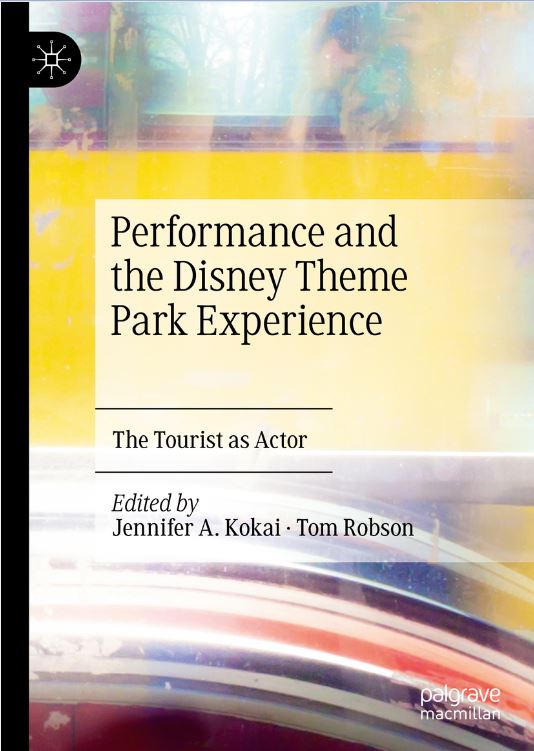
Tourism, Performance, Anxiety
Writing in a time of heightened political anxiety–and when accusations of nationalism, authoritarianism, and proto-fascism have increasingly divided Americans into factions– the authors use their influential performance studies-based ‘tourist as actor’ framework to unpack the ways that Disney parks and their guests co-create performance of implicit Americanness in the 21st century. This book argues that the roles that guests choose to perform– accepting, declining, negotiating, or overwriting scripts offered to them by the Disney theme park experience– ultimately reveals much about the nature of the contemporary United States. Focusing primarily on Walt Disney World in Florida, and using case studies on music, geography and ecology, sports, families, and politics, these chapters illuminate the always complicated and often contradictory presentations and performances of America within Disney parks in the deeply contested twenty-first century.
Performance and the Disney Theme Park Experience: The Tourist as Actor
Jennifer A. Kokai and Tom Robson
This book addresses Disney parks using performance theory. Few to no scholars have done this to date—an enormous oversight given the Disney parks’ similarities to immersive theatre, interpolation of guests, and dramaturgical construction of attractions. Most scholars and critics deny agency to the tourist in their engagement with the Disney theme park experience. The vast body of research and journalism on the Disney “Imagineers”—the designers and storytellers who construct the park experience—leads to the misconception that these exceptional artists puppeteer every aspect of the guest’s experience. Contrary to this assumption, Disney park guests find a range of possible reading strategies when they enter the space. Certainly Disney presents a primary reading, but generations of critical theory have established the variety of reading strategies that interpreters can employ to read against the text. This volume of twelve essays re-centers the park experience around its protagonist: the tourist.
Swim Pretty: Aquatic Spectacles and the Performance of Race, Gender, and Nature
Exploring the impact of aquatic spectacles on our cultural perceptions of water
Drawing on cultural associations with bodies of water, the spectacle of pretty women, and the appeal of the concept of “family friendly” productions, performative aquatic spectacles portray water as an exotic fantasy environment exploitable for the purpose of entertainment. In Swim Pretty, Jennifer A. Kokai reveals the influential role of aquatic spectacles in shaping cultural perceptions of the aquatic ecosystems in the United States and links the uncritical love of aquatic spectacles to a disregard for the rights of marine animals and lack of concern for the marine environment.
In December 2018, I appeared on a podcast for Radio New Zealand! Pop Culture: Beach Please
In October of 2017, I was a Keynote Speaker at the Conference on Mermaids, Maritime Folklore, and Modernity in Copenhagen, Denmark.
I was interviewed by The Guardian about Weeki Wachee, Mermaids, and aquatic spectacles for a June 14, 2015 article.
I tweet frequently about water, climate change, sea animals, and mermaids @drjenniferkokai
I am happy to be reached through my contact form to discuss speaking engagements or media inquiries.


